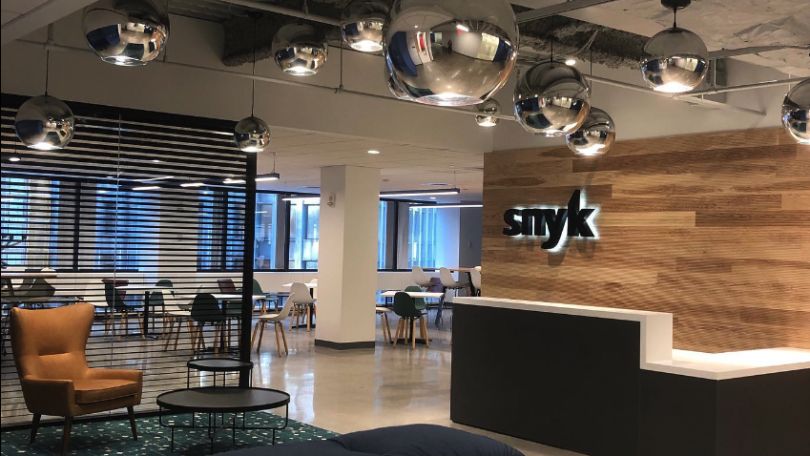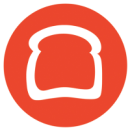One of the most important skill sets that someone can have is, ironically, identifying transferable skill sets. It’s a bit of a mouthful to say, but it’s true. A plethora of research about the workplace and career growth speaks to the value of skills that can be “transferred” to other jobs, industries, teams and problems.
One study published by the The International Academy of Technology, Education and Development noted the common pathways that are seen in many transferable skills include some aspects of communication, problem solving and critical thinking. The combination of all three are important aspects of transferable skills — like time management, coordination and active listening — across industries.
Built In Boston spoke with two tech leaders whose career journeys gave them a vault of transferable skills and landed them in key roles on their product and technical teams.
Toast provides a single platform of SaaS products and financial technology solutions to help restaurants run smoothly.
What is your current tech role, and what first sparked your interest in that field?
I’m Toast’s senior director of enterprise product. I manage a team of product managers, engineers, architects and designers who focus on Toast’s enterprise customers and their unique needs. My team works on engaging technical problems, deeply understands customer needs and delivers solutions used by restaurateurs to delight their guests and grow their business.
I didn’t plan on a tech career — I have a degree in English and anthropology — but I always had an interest in technology. My journey began when a former mentor and colleague helpfully pointed out I was acting as a product manager even though my role was in program management. I didn’t really have a strong sense of what it meant to be a product manager; I just knew I liked working with engineers and designers, and I wasn’t afraid of leading technically complex work with many dependencies and critical requirements.
At Toast I find it gratifying to work in a customer-centric, mission-driven organization that supports an industry I love. I’ve touched so many different parts of the product, gotten to build and work with an amazing team and developed strong relationships with customers — making every day unique and interesting.
Share a bit about your journey into tech. What challenges did you face along the way, and how did you overcome them? Did any specific interests help expand your expertise?
At every stage of my career, working closely with engineering and design partners has been critical. When I started out, I worked at a small tech startup with under 20 employees. I was a jack of all trades — program management, sales enablement, user research, design and quality assurance — you name it.
It was energizing but also challenging — I had to build my confidence and ability to act quickly, make decisions and, most importantly, have a strong voice and product perspective. Only then could we get the right level of focus and direction.
As the company grew, so did my responsibilities. My next challenge was to learn how to best partner with others in the organization. Asking questions, admitting I don’t have all the answers and establishing trust with my colleagues helped me be successful in this stage. My willingness to go deep with my colleagues, understand constraints and keep us laser-focused on meaningful outcomes helped me navigate a growing, more matrixed organization.
My background in liberal arts is an asset. I’m not technical enough to understand the underpinnings of every solution or have the expertise to make every design decision, but the ability to create a narrative has served me well.
“My background in liberal arts is an asset … the ability to create a narrative has served me well.”
How did mentors, networks or programs help you advance your interests and profession? How do you pass that support on to early career professionals?
One of my first mentors was the one who helped me see that I was essentially acting as product manager without the title. She connected the dots for me and pivoted my career. She supported my professional growth by directly throwing my name in the ring for big projects and high-visibility customers. I would not be where I am today without the support of many mentors and managers I’ve had in my career. They’ve advocated on my behalf, given positive and hard to hear feedback and supported me as I moved into more and more responsibility.
I try to pay that forward by working with more junior level product managers as a coach, mentor and advocate both inside and outside my organization. Being a sounding board for junior PMs just starting out is something I prioritize, even when things are really busy day to day. Many product management skills are learned on the job, so sharing my hard-earned lessons and experiences can help someone else grow.
Working with more junior product managers is something I find really grounding. I hope to continue to support colleagues as they navigate what it means to be a product manager in a dynamic and changing industry like restaurant tech.

Snyk is a developer security platform that makes it easy for development teams to find, prioritize, and fix security vulnerabilities in code, dependencies, containers and cloud infrastructure.
What does your current role entail?
I’m currently a lead technical success manager at Snyk, where I help our customers leverage Snyk’s technology to meet their security and development goals.
As a technical success manager, I act as a strategic advisor, ensuring customers achieve maximum value from our platform. I tackle complex technical challenges, facilitate product adoption and drive customer satisfaction through training, feedback and strategic interactions. I have the privilege of collaborating with enterprise clients across various sectors, including financial services, communications and pharma.
What drew you to cybersecurity?
My journey into cybersecurity was sparked when I worked at a content delivery network that also provided security services. That experience piqued my interest in the growing need for digital security, making my transition to Snyk a natural step. What drew me to this field is the opportunity to not only work directly with customers, but also collaborate across cross-functional teams to solve problems.
The dynamic, fast-paced nature of cybersecurity, and the chance to overcome challenges together with our customers and teams, continues to fuel my passion for this role.
How did your career in tech begin?
I began my career in the localization industry and eventually found my way into cybersecurity, with each role offering valuable learning experiences. My natural curiosity and drive to find more efficient solutions drew me to tech, where I discovered my passion for fast-paced environments, problem-solving and the constant collaboration between internal teams and customers.
“My natural curiosity and drive to find more efficient solutions drew me to tech.”
What challenges did you face along your journey into tech?
One of the biggest challenges I’ve faced in my journey is overcoming imposter syndrome. Entering new roles often meant learning a new set of technical skills, which felt intimidating. I’ve been fortunate to receive support from colleagues, formal training and my own determination to continuously learn and grow. This combination has helped me navigate through complex material and unfamiliar territory.
Did any specific interests or skills expand your expertise?
In moments of doubt, I’ve leaned into my strengths in communication and program management, which are essential in finding solutions and driving initiatives forward. These skills allowed me to bridge the gap between technical challenges and business needs, empowering me to feel more confident. I enjoy breaking down complex problems, finding ways to streamline solutions and making meaningful impacts in my roles.
How did mentors, networks or programs help you advance your interests and profession?
Mentors, networks and professional development programs have played a huge role in my journey. Early in my career, I was fortunate to have mentors who helped me navigate unfamiliar territory, offering advice not just on technical skills, but also on leadership and how to build meaningful relationships. Their support has been invaluable, especially in teaching me how to adapt, collaborate across teams and think strategically.
I’ve been lucky to have people guide and support me, and I’m passionate about creating that same space for others to thrive in the future. I’ve had the opportunity to onboard new technical success managers at Snyk and look forward to bringing on more folks who are passionate about problem solving and working with customers.
Why is Snyk special in your opinion?
Snyk is special because it’s a place that fosters curiosity, collaboration and creativity. Building and nurturing relationships across the company is encouraged, even if through a simple Slack message or joining the Donut Slack program. We have so many opportunities to connect with other Snykers through volunteer work, Snyk’s employee resource groups, or in-person and virtual company-hosted events.









